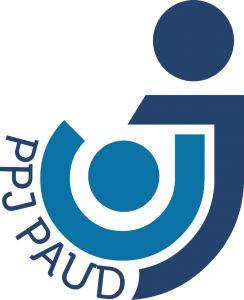Peningkatan Kemampuan Kognitif Melalui Bermain Manipulatif Pada Anak Kelompok B PAUD Intan Insani Kota Bengkulu
DOI:
https://doi.org/10.30736/jce.v7i1.1473Keywords:
Kemampuan Kognitif, Bermain Manipulatif, Anak Usia Dini,Abstract
Penelitian bertujuan untuk mengetahui apakah kegiatan bermain manipulatif dapat meningkatkan kemampuan kognitif pada anak kelompok B PAUD Intan Insani Kota Bengkulu. Subjek penelitian berjumlah 14 orang anak. Metode penelitian adalah penelitian tindakan yang mengacu pada model penelitian tindakan Kemmis dan Mc Taggart yang meliputi empat tahap yaitu perencanaan, tindakan, pengamatan, dan refleksi. Penelitian ini terdiri dari dua siklus, masing-masing siklus terdiri dari delapan tindakan. Teknik analisis data yang digunakan adalah analisis data kualitatif dan analisis data kuantitatif. Hasil penelitian menunjukkan bahwa kemampuan kognitif anak B PAUD Intan Insani Kota Bengkulu, mengalami peningkatan setelah mereka mengikuti bermain manipulatif. Skor kemampuan kognitif anak tercatat 35,21 pada tahap pra siklus, meningkat menjadi 45,71 pada akhir siklus ke-1, dan terus meningkat menjadi 57,5 pada akhir siklus ke-2. Hasil penelitian memberikan indikasi bahwa bermain manipulatif dapat dijadikan sebagai salah satu cara untuk meningkatkan kemampuan kognitif pada anak usia dini.References
Anthony, T. (2013). Play and Movement in Early Childhood: Setting the Early O&M Stage for Succes. AER International O&M Converence.
Ardanari, P., Mintarto, E., Tuasikal, A. R. S., & Suroto, S. (2020). Aktivitas Bermain Meningkatkan Keterampilan Manipulatif : Review Jurnal. Gelanggang Pendidikan Jasmani Indonesia, 4(1), 79. https://doi.org/10.17977/um040v4i1p73-78
Astuti, M. (2017). Penggunaan Metode Bermain Alat Manipulatif Dalam Meningkatkan Minat Mengenal Konsep Bilangan Pada Siswa Kelompok B TK Ar Ridlo Tahun Pelajaran 2013/2014. Jurnal CARE (Children Advisory Research and Education, 4.
Hurlock, E. (1978). Perkembangan Anak: Jilid I (6th ed.). Erlangga.
Kementrian Pendidikan, Kebudayaan, Riset, dan T. (2021). Panduan APE Aman Bagi Anak Usia Dini. Direktorat Pendidikan Anak Usia Dini.
Kemmis, Stephen. Taggart, R. M. A. N. R. (2014). The Action Research Planner: Doing Critical Participatory Action Research. Springer.
Khadijah dan Nurul Amelia. (2021). Perkembangan Kognitif Anak Usia Dini: Teori dan Praktek. Kencana Prenadamedia Group.
Mill, G. E. (2003). Action Research a Guide For The Teacher Research Second (2nd ed.). Merrill Prentice Hall.
Said, A. dan B. (2015). Strategi Mengajar Multiple Intelegences. Prenadamedia Group.
Santrock, J. W. (2012). Life-Span Development (13th ed.). Erlangga.
Slavin, R. E. (2011). Psikologi Pendidikan: Teori dan Praktek. PT Index.
Suryandari, A. K. (2021). Perkembangan Kognitif dan Bahasa Anak Usia Dini. Guepedia.
Downloads
How to Cite
Issue
Section
License
Please find the rights and licenses in JCE (Journal of Childhood Education). By submitting the article/manuscript of the article, the author(s) agree with this policy. No specific document sign-off is required.
1. License
Use of articles will be governed by the Creative Commons Attribution - ShareAlike license as currently displayed on Creative Commons Attribution-ShareAlike 4.0 International License.
2. Author(s)' Warranties
The author warrants that the article is original, written by stated author(s), has not been published before, contains no unlawful statements, does not infringe the rights of others, is subject to copyright that is vested exclusively in the author and free of any third party rights, and that any necessary written permissions to quote from other sources have been obtained by the author(s).
3. User Rights
JCE (Journal of Childhood Education)'s spirit is to disseminate articles published are as free as possible but there is a little payment for publication. Under the Creative Commons license, JCE (Journal of Childhood Education) permits users to copy, distribute, display, and perform the work for commercial purposes. Users will also need to attribute authors and JCE (Journal of Childhood Education) on distributing works in the journal and other media of publications.
4. Co-Authorship
If the article was jointly prepared by more than one author, any authors submitting the manuscript warrants that he/she has been authorized by all co-authors to be agreed on this copyright and license notice (agreement) on their behalf, and agrees to inform his/her co-authors of the terms of this policy. JCE (Journal of Childhood Education) will not be held liable for anything that may arise due to the author(s) internal dispute. JCE (Journal of Childhood Education) will only communicate with the corresponding author.
5. Miscellaneous
JCE (Journal of Childhood Education) will publish the article (or have it published) in the journal if the article’s editorial process is successfully completed. JCE (Journal of Childhood Education)'s editors may modify the article to a style of punctuation, spelling, capitalization, referencing and usage that deems appropriate. The author acknowledges that the article may be published so that it will be publicly accessible and such access will be free of charge for the readers as mentioned in point 3.
JCE (Journal of Childhood Education) by Universitas Islam Lamongan is licensed under a Creative Commons Attribution-ShareAlike 4.0 International License.Based on a work at http://journalfai.unisla.ac.id/index.php/jce.












